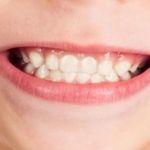1. What Are Dentures?
Dentures are removable dental appliances designed to replace missing teeth and restore the function and appearance of your smile. Made from acrylic or a combination of acrylic and metal, dentures are custom-made to fit the unique shape of your mouth. Whether you need to replace a few teeth or a full set, dentures can provide an effective solution for individuals with missing teeth due to aging, injury, or other health conditions. Dentures can be used to improve your chewing, speaking, and overall confidence, giving you a natural-looking smile once again.
2. Types of Dentures
There are several types of dentures available, each designed to meet different needs. The two main categories are:
- Complete Dentures: These are used when all the teeth are missing. A full set of dentures is custom-made to fit over the gums, providing a complete restoration of both upper and lower teeth.
- Partial Dentures: These are used when some natural teeth remain. Partial dentures fill in the gaps caused by missing teeth and are often connected to the remaining teeth using clasps.
Additionally, there are options for immediate dentures (fitted immediately after teeth are extracted), implant-supported dentures (which are secured by dental implants), and custom dentures designed for a more precise fit. Your dentist will help you determine which type of dentures is the best option for your dental needs.
3. Benefits of Using Dentures
Dentures offer several benefits that can greatly improve your quality of life, especially if you are missing teeth. Here are some key advantages:
- Improved Appearance: Dentures restore the natural contours of your face and smile, making you look younger and more vibrant.
- Better Functionality: With dentures, you can eat, speak, and smile with confidence, as they improve your ability to chew food and pronounce words clearly.
- Increased Comfort: While they may take some time to adjust to, modern dentures are designed to fit comfortably and securely, allowing you to enjoy daily activities without discomfort.
- Enhanced Self-Esteem: Missing teeth can have a negative impact on your self-confidence. Dentures can help you feel more confident in social and professional settings.
Ultimately, dentures provide a practical, non-invasive solution for individuals seeking to restore their smile and improve their dental function.
4. How to Care for Your Dentures
Taking care of your dentures is essential to ensure their longevity and maintain oral health. Here are some basic care tips:
- Clean Regularly: Just like natural teeth, dentures should be cleaned daily to remove food particles and plaque. Use a soft-bristled toothbrush and a mild cleanser designed specifically for dentures.
- Soak Overnight: Soaking dentures overnight in water or a denture-cleaning solution helps maintain their shape and keeps them hydrated.
- Avoid Hot Water: Hot water can warp dentures, so it’s important to always clean them with lukewarm or cold water.
- Visit Your Dentist: Regular check-ups with your dentist are crucial to ensure that your dentures are fitting properly and to make any necessary adjustments.
By following these simple care instructions, you can keep your dentures clean, functional, and comfortable for years to come.
5. Real-Life Stories of Denture Users
Many people have found that dentures have improved their lives significantly. Take John, for example, a 58-year-old who had struggled with missing teeth for years. After getting dentures, he was able to eat his favorite foods again without pain or embarrassment. He also noticed a boost in his confidence during social interactions. Similarly, Sarah, a young woman who had lost several teeth due to an accident, was able to regain her natural smile with partial dentures. These real-life stories highlight how dentures can restore both function and confidence, allowing individuals to live life to the fullest.







 Greco Orthodontics5.0 (98 review)
Greco Orthodontics5.0 (98 review) Chelmsford Family Dental5.0 (22 review)
Chelmsford Family Dental5.0 (22 review) Family Dental of Fort Myers4.0 (1220 review)
Family Dental of Fort Myers4.0 (1220 review) Bright Now! Dental & Orthodontics4.0 (340 review)
Bright Now! Dental & Orthodontics4.0 (340 review) Absolute Dental - Sunset4.0 (726 review)
Absolute Dental - Sunset4.0 (726 review) Papania Family Dentistry4.0 (166 review)
Papania Family Dentistry4.0 (166 review) The Importance of Oral Health Education During Pregnancy for a Healthy Pregnancy
The Importance of Oral Health Education During Pregnancy for a Healthy Pregnancy Best Tips for Brushing Your Teeth Properly for Healthy Gums: Essential Techniques for Oral Health
Best Tips for Brushing Your Teeth Properly for Healthy Gums: Essential Techniques for Oral Health Why Skipping Dental Checkups Can Lead to Bigger Oral Health Problems
Why Skipping Dental Checkups Can Lead to Bigger Oral Health Problems Advantages of Porcelain Dental Restorations
Advantages of Porcelain Dental Restorations How Can Diabetes Cause Tooth and Gum Problems? Preventing and Managing Oral Health Issues
How Can Diabetes Cause Tooth and Gum Problems? Preventing and Managing Oral Health Issues Healthy Habits for Promoting Good Oral Health and Hygiene: Tips for a Healthy Smile
Healthy Habits for Promoting Good Oral Health and Hygiene: Tips for a Healthy Smile